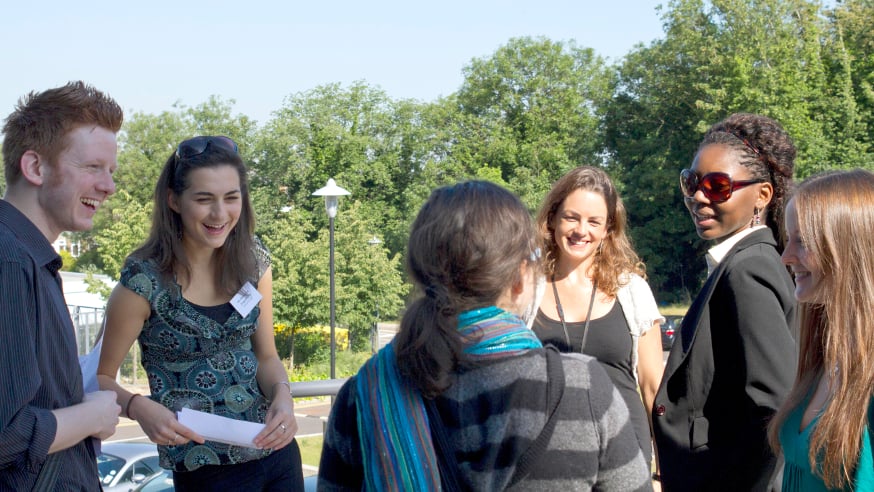
As summer begins, my thoughts turn to holidays, barbeques, and sun — even in the UK! But every year, some students put me to shame, and decide to dedicate their brain power to something more satisfying — the chance to undertake a study placement at one of the world’s leading cancer research institutes.
This summer The Institute of Cancer Research welcomed six students to spend an average of six to eight weeks in our labs. I chatted to some of these students last year, and this year decided that I wanted to find out a bit more about how the placement opens doors for their futures.
Students at the ICR might find themselves creating something, like Kristof Farkas-Pall, who was in Dr Bissan Al-Lazikani’s lab. While there, he helped to develop an algorithm to make connections between a drug candidate and the compounds that took part in and represent the drug discovery path.
He also developed an app to provide user-friendly access to this data, which “anyone can use and explore the results of his or her favourite drug”.
First name publications
Other students have become published authors — last year, summer student David Jarvis was first author on a paper in the British Journal of Cancer. This year Henry Rodriguez-Broadbent is hoping to follow in his footsteps — he’s in Professor Richard Houlston’s lab, as David was, and is also writing up an epidemiological paper based on his results – not something he ever thought he’d find himself doing, as a mathematics student.
Henry found out about the ICR programme through an advert in his university’s maths department, and saw it as a way to get back into the biological studies he had enjoyed as a younger student. Being in the lab has been inspiring, Henry said: “The experience of working with a team of post-grads and postdocs has been very rewarding, and trawling through millions of numbers on a computer to produce a directly biological result with them gave a feeling of real accomplishment.”
Attracting bright minds
Professor Houlston said that the ICR summer studentship scheme offers a lot of value for summer students, and for the ICR itself. “The quality of the students who apply is very, very high. I think the summer studentship scheme is an excellent vehicle for attracting bright minds.”
After the summer, Henry has been inspired to think about the possibilities offered by biological research, even to those who studied fields you might not connect with them, such as mathematics. He’s also happy that the experience was a positive one: “I’ve learned much more than I thought I was going to when I applied, in a setting that has been much more relaxed and friendly than that you’d expect whilst in a learning environment – I’m very glad I went on this summer scheme!”
Applications for next summer’s placements will open in January 2017, when details will be advertised on the ICR’s website, and students will be able to contact Team Leaders who are willing to take on a student to perform a summer research project. Successful applications are announced in early May.
comments powered by